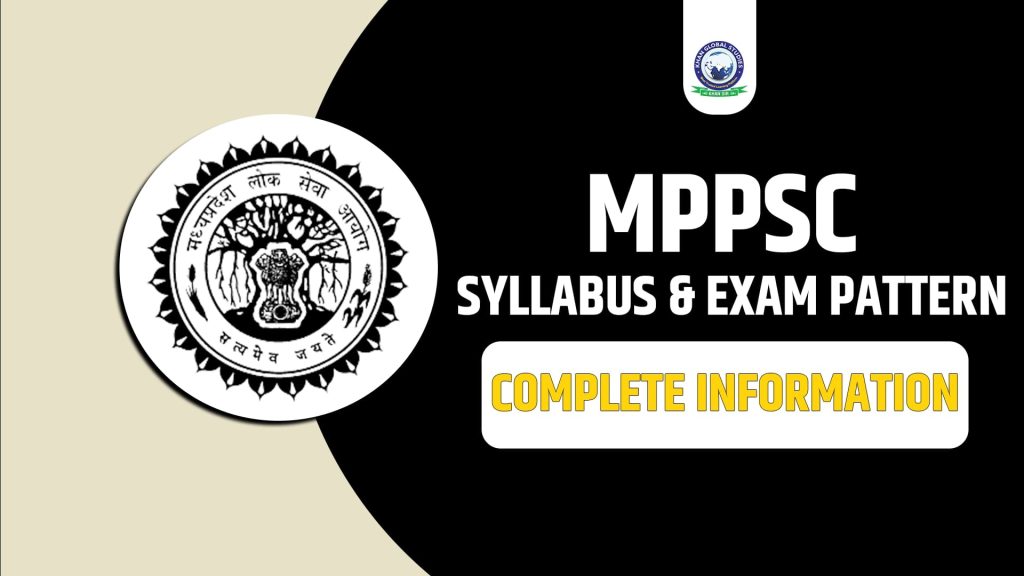
The new notification of MPPSC 2023 was released by the Madhya Pradesh Public Service Commission (MPPSC) on 5th September. With the release of the official notification, the MPPSC Syllabus and Exam Pattern have also been made available for interested candidates. MPPSC syllabus plays a vital role in the exam preparation process as it provides candidates with a structured and efficient approach to study.
MPPSC Syllabus and Exam Pattern
The MPPSC syllabus contains a topic-wise descriptive syllabus for the MPPSC Prelims and Mains exam. MP PSC syllabus can be studied according to the chapters and weightage of subjects. MPPSC Commission has also released the MPPSC Exam Pattern for MPPSC Pre and Mains Examination. This article provides a detailed MPPSC Syllabus and MPPSC Exam Pattern descriptively to provide a complete understanding of the MPPSC Exam.
MPPSC Exam Pattern
The MPPSC 2023 exam will be conducted in three phases. The MPPSC exam pattern for all three stages is in the table below:
| Exam Name | Subject | Maximum Marks | Time Duration |
|---|---|---|---|
| MPPSC Prelims Exam | General Studies (Objective) | 200 | 2 Hours |
| General Aptitude Test (Objective) | 200 | 2 Hours | |
| MPPSC Mains Exam | General Studies-I | 300 | 3 Hours |
| General Studies-II | 300 | 3 Hours | |
| General Studies-III | 300 | 3 Hours | |
| General Studies-IV | 200 | 3 Hours | |
| Hindi | 200 | 3 Hours | |
| Hindi (Essay) | 100 | 2 Hours | |
| MPPSC Interview | Personality Test | 175 | — |
MPPSC Prelims Syllabus 2023
Candidates can check the MPPSC Prelims Exam Syllabus in this section. Candidates should be well aware of the MPPSC syllabus so that they can plan their preparation strategy accordingly. The syllabus of the MPPSC Prelims Exam 2023 is as follows:
MPPCS Prelims Syllabus for General Studies (Objectives Paper)
- History, Culture and Literature of Madhya Pradesh
- History of India
- Geography of Madhya Pradesh
- Geography of India and the World
- (A) Constitutional System of the State
(B) State Economy - (A) Indian Constitution and Governance System
(B) Economy of India - Science and Environment
- International and National Current Events
- Information and Communication Technology
- National and Regional Constitutional/Statutory Bodies
MPPCS Prelims Syllabus for General Aptitude Test
- Comprehension.
- Interpersonal Skills including Communication Skills.
- Logical Reasoning and Analytical Ability.
- Making decisions and solving problems.
- General Mental Ability.
- Basic Numeracy.
- Hindi Language Comprehension Skills (Xth Class Level).
MPPSC Mains Syllabus 2023
Candidates can check the MPPSC Mains Exam Syllabus in this section. Candidates should be well aware of the MPPSC syllabus so that they can plan their preparation strategy accordingly. The syllabus of MPPSC Main Exam 2023 is as follows:
Paper-1: General Studies-I (History & Geography)
| Unit | Paper I (History) | Paper-II (Geography) |
| I | Indian History: Political, Economic, Social and Cultural History of India from Harappan Civilization to 10th Century A.D. | Major Physical Features: Mountains, Plateaus, Plains, Rivers, Lakes and Glaciers. Major Geographical Phenomena: Earthquakes, Tsunami, Volcanicity, Cyclone. World Climate: Climate and seasons, distribution of rainfall and climatic regions, Climate change and its effects. |
| II | Political, Economic, Social and Cultural History of India from 11th to 18th Century A.D. Mughal rulers and their administration, Emergence of composite culture.Impact of British Rule on Indian Economy and Society. | Major physical features: Mountains, Plateaus, Plains, Rivers, Lakes and Glaciers.Physiographic Division of India. Climate: Origin of Monsoon, El Nino, Climate and Seasons, Distribution of rainfall and climatic regions. Natural Resources: Types and their uses. (A) Water, forest, soil (B) Rocks and minerals. Population: Growth, distribution, density, sex ratio, literacy, migration, rural and urban population. Food Processing and Related Industries: Scope and significance, Localization of industries, Requisites for forwarding and backward linkages for industries, demand-supply and chain management. |
| III | Reactions of Indians against British Colonial Rule: Peasant and Tribal revolts, The First Struggle of Independence. Indian Renaissance: National Freedom Movement and its leaders. Emergence of India as a Republic Nation, Reorganization of States, Formation of Madhya Pradesh. Major events of the post-independence period. | Major Geomorphic Regions with special reference to Narmada Valley and Malwa Plateau. Natural vegetation and climate. Soil: Physical, chemical and biological properties of soil, soil formation process, problems of soil erosion and soil degradation, problem soil and methods of its reclamation, soil conservation planning on a watershed basis. Mineral and Energy Resources: Types, distribution and uses. Major Industries: Based on agricultural produce, forests and minerals. The Tribes of States. |
| IV | Independence Movement in Madhya Pradesh. Indian Cultural Heritage (with special reference to Madhya Pradesh). Salient aspects of Art Forms, Literature, Festivals and architecture from ancient to modern times. World Heritage sites in Madhya Pradesh and Tourism. | Drinking Water: Supply, factors of impurity of water and quality management. Water management. Groundwater and water conservation. Natural and Man-made disasters, Concept and scope of disaster management, specific hazards and mitigation. Community planning: Resource mapping, relief and rehabilitation, preventive and administrative measures, safe construction. Alternative communication and survival efficiency. |
| V | Gondwana, Bundeli, Bagheli, Holkar, Scindia and Bhopal State (From the beginning till independence). | Remote Sensing: principles, electromagnetic spectrum, components, types of satellite, Application of remote sensing. GIS (Global Information System): Components of GIS, and its applications. GPS (Global Positioning System): Basic concepts of GPS and its applications. |
Paper-2: General Studies-II
| Unit | Paper-I (The Constitution, the Political and Administrative Structure of Governance) | Paper-II (Economics and Sociology) |
| I | Indian Constitution – Creation, Features, Basic Structure and Major Amendments. Ideological elements – Introduction, Origin, Directive Principles of State Policy, Rights, Fundamental Duties. Federalism Centre-State relations, Supreme Court, High Court, Judicial Review, Judicial Power, Lok Sabha and Public Interest Litigation. | Issues and initiatives in agriculture, industry and service sectors in India. Calculation of national income in India.Functions of Reserve Bank of India and Commercial Banks, Financial Inclusion, Currency. Rick policy. Features of a good tax system: Direct taxes and indirect taxes, subsidies, cash transactions, and fiscal policy. Public Distribution System, Current Trends and Challenges of Indian Economy, Poverty, Unemployment and Regional Imbalances. India’s International Trade and Balance of Payments, Role of Foreign Capital, Multinational Companies, Foreign Direct Investment, Import-Export Policy, International Monetary Fund, World Bank, Asian Development Bank, WTO, ASEAN, SAARC, NAFTA and OPEC. |
| II | Comptroller and Auditor General of the Election Commission of India, Union Public Service Commission, Madhya Pradesh Public Service Commission and NITI Aayog. Role of caste, religion, class, ethnicity, language and gender in Indian politics, Political parties and voting behavior in Indian politics, Civil society and mass movements, National integrity and security issues. | Major crops, agricultural holding area and cropping patterns, physical and social environmental impact of production and distribution of crops, issues related to quality and supply of seeds and fertilizers, farming methods, horticulture, poultry, dairy, fish and animal husbandry etc. and problems and challenges related to agricultural production, transportation, storage and marketing. Agricultural welfare schemes. Contribution of the service sector.Infrastructure and resources of Madhya Pradesh. Demographic scenario of Madhya Pradesh and its impact on the economy of Madhya Pradesh. Industrial sectors, development trends and challenges. Availability of skilled human resources, planning and productivity of human resources, and various employment trends. |
| III | Public participation and local governance in the context of the 73rd and 74th amendments of the Constitution. Accountability and Rights – Competition Commission, Consumer Forum, InformationCommission, Women’s Commission, Human Rights Commission, SC/ST/OBC Commission, and Central Vigilance Commission. Features of Democracy – Political representation, citizens in decision-making process Participation of. Community-Based Organizations (CBOs) Non-Governmental Organizations (NGOs) and Self Help Groups (SHGs). Role and problems of media (electronic, print and social media). | Education-elementary education, higher education and technical and medical education, quality of vocational education, girls’ education. Social issues and their welfare programs relate to the following sections – disabled sections, elderly children, women, socially deprived sections, and sections displaced as a result of development projects. |
| IV | Indian Political Thinker. Kautilya, Mahatma Gandhi, Jawaharlal Nehru, Sardar Vallabhbhai Patel, Ram Manohar Lohia, Dr. B. R. Ambedkar, Deendayal Upadhyay, Jaiprakash Narayan. | Components of social harmony, concept of civilization and culture, characteristics of Indian culture. Rituals, various contexts, caste system, ashrams, efforts, metal-based religion and influence of saint-sects on the society, methods of marriage. Community Development Programme, Extension Education, Panchayati Raj, Role of Non-Governmental Organizations (NGOs) in community development, New Trends in Rural Development in the Field of Volunteerism, Family Courts. |
| V | Administration and Management – Meaning, nature and importance, the role of public administration in developed and developing societies, the evolution of public administration as a subject, new public administration, principles of public administration. Concepts of power, authority, responsibility and delegation. Principles of organization, hierarchy, span of control and unity of command. New dimensions of public management, change management and development administration. | Population and health problems, health education and empowerment, family welfare programmes, population control. Status of tribes in Madhya Pradesh, social structure, customs, beliefs, marriage, kinship, religious beliefs and traditions prevalent in the tribes, festivals and celebrations. Women’s education, family health, birth-death statistics causes and effects of malnutrition, government programs for supplementary nutrition, technical interventions in the field of immunity – -vaccination, treatment of infectious and non-infectious diseases. World Health Organization – Purpose, structure, functions and programmes. |
Paper-3: General Studies-III (Science and Technology)
| Unit | Topics |
| I | Science (Physics, Chemistry & Biology) |
| II | Reasoning and Data Interpretation |
| III | Technology (Computer Fundamental) |
| IV | Emerging Technologies |
| V | Energy |
| VI | Environment and Sustainable Development |
| VII | Indian Economy |
Paper-4: General Studies-IV (Philosophy, Psychology and Public Administration)
| Unit | Topics |
| I | Philosophers/Thinkers, Social Reformers – Socrates, Plato, Aristotle, Mahavir, Buddha, Acharya Shankar, Charyayak, Guru Nanak, Kabir, Tulsidas, Rabindranath Tagore, Rajaram Mohan Roy, Savitri Bai Phule, Swami Dayanand Saraswati, Swami Vivekananda, Maharishi Aurobindo and Sarvepalli. Radhakrishnan. |
| II | Attitude – Content Elements Tasks Attitude Formation, Attitude Change, Persuasive Communication, Prejudice and Discrimination, Stereotypes in Indian Context. Aptitude and basic qualifications for public service are honesty, impartiality and non-conformist impartiality, dedication to public service, empathy, tolerance and sensitivity/compassion towards weaker sections. Emotional Intelligence – Concept, its usefulness and applications in administration/governance.individual differences. |
| III | Human needs and unmotivated. Ethical Virtues and Values in Public Administration – Ethical elements in administration – integrity, accountability and transparency, moral reasoning and ethical dilemma and prudence as moral guidance, code of conduct for public servants, and adherence to high values in governance. |
| IV | Corruption, types and causes of corruption, the impact of corruption, measures to reduce corruption, society, information system, family and role of whistleblower, United Nations Declaration on Corruption, Measurement of Corruption, Transparency International, Lokpal and Lokayukta. |
| V | Case Study- Based on material covered in the course. |
Paper-5: General Hindi & Grammar
| Unit | Topics |
| I | Short Answer Questions |
| II | Figure of Speech |
| III | Translation of sentences from Hindi to English and from English to Hindi. |
| IV | Sandhi and Samas, Punctuation |
| V | Elementary Grammar and Vocabulary- 1. Administrative terminology (Hindi/English) 2. Idioms and proverbs 3. Antonyms 4. One word for many words 5. Words Tatsama and Tadbhava 6. Synonyms 7. Standard Terminology |
| VI | Unread Passage |
| VII | Pallavan – The meaning of the underlined or given lines is Pallavan. |
| VIII | Summary – Summarize the paragraph in one-third words. |
Paper-6: Hindi Essay
| Unit | Topics |
| I | First Essay (about 1000 words) |
| II | Second Essay: Contemporary Problems and Solutions (about 500 words) |
| III | Draft Writing Government and Semi-Government letters, circulars, forms, advertisements, orders, endorsements, reminders, report writing, notifications, note writing etc. (about 250 words) (any two). |
MPPSC Syllabus for Interview 2023
Madhya Pradesh Public Service Commission will release the final merit list based on the main examination and interview marks.
- The third and last stage of the MPPSC exam is an interview which is a personality test.
- The interview stage of the MPPSC State Service Examination carries a total of 175 marks.
- There is no syllabus for this, hence candidates are suggested to conduct as many mock sessions as possible with friends and colleagues to crack the exam.
- It is held to understand the soft skills of the candidate.
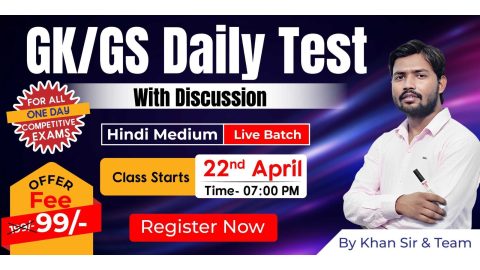
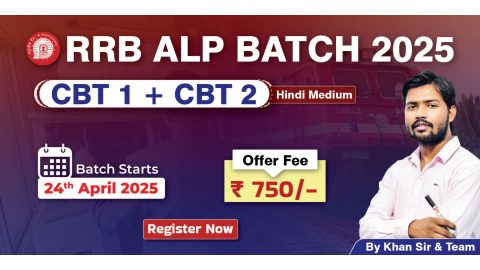



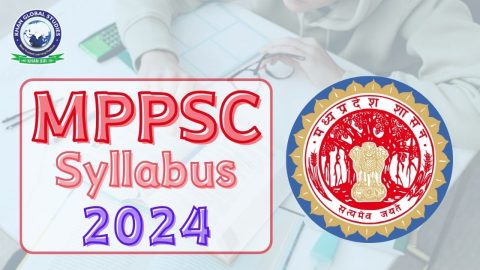
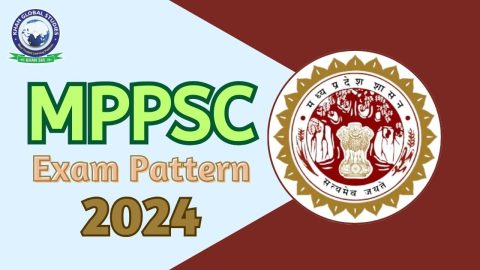
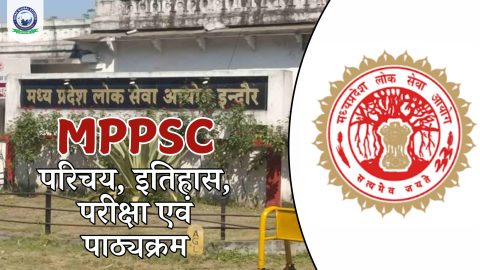
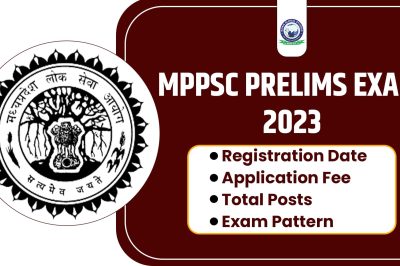
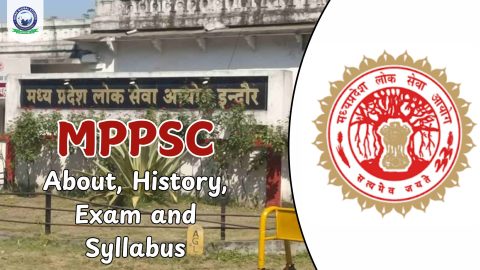
Your tips are always so practical.